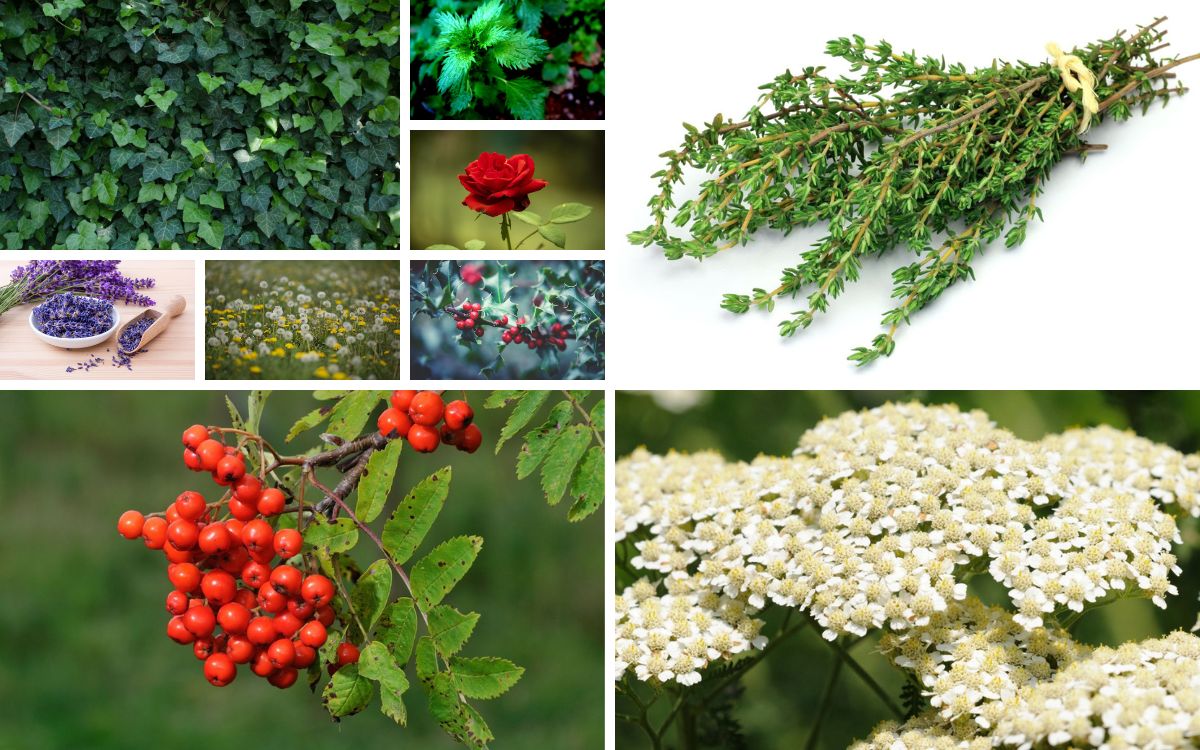Many common garden plants in the UK have been used in magical and folkloric practices for centuries. Here are some of the most well-known.
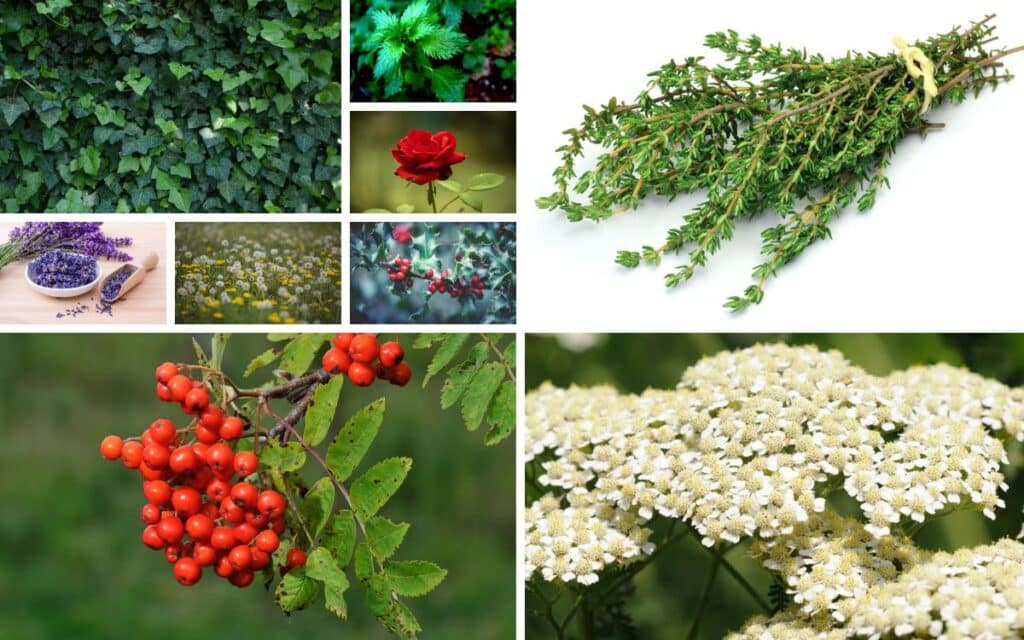
Common garden plants have been used in magic and folklore for centuries, playing a significant role in many cultures and traditions. These plants were often associated with specific magical properties, and were used in rituals and spells to bring about desired outcomes, such as protection, love, prosperity, and healing.
By learning about the traditional uses of plants found in British gardens, we can deepen our connection to nature and the natural world.
Here are common garden plants used in folklore and magic
Rose: Love, Protection, and Divination
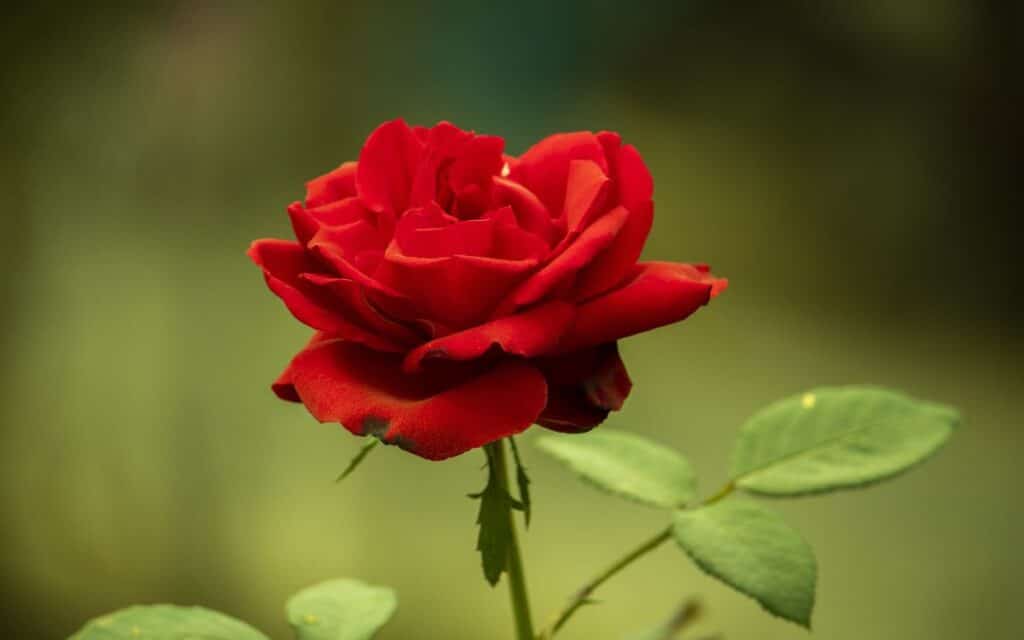
Roses are perennial flowering plants with fragrant blooms in a variety of colours, including pink, red, white, and yellow. They are often associated with love and romance, but have also been used for protection and divination in magical practices. To attract love, you could carry a dried rose petal in your pocket, or sprinkle rose petals around your home. To protect yourself from negative energy, you could make a rosewater spray and mist it around your space.
Lavender: Purification, Healing, and Calming
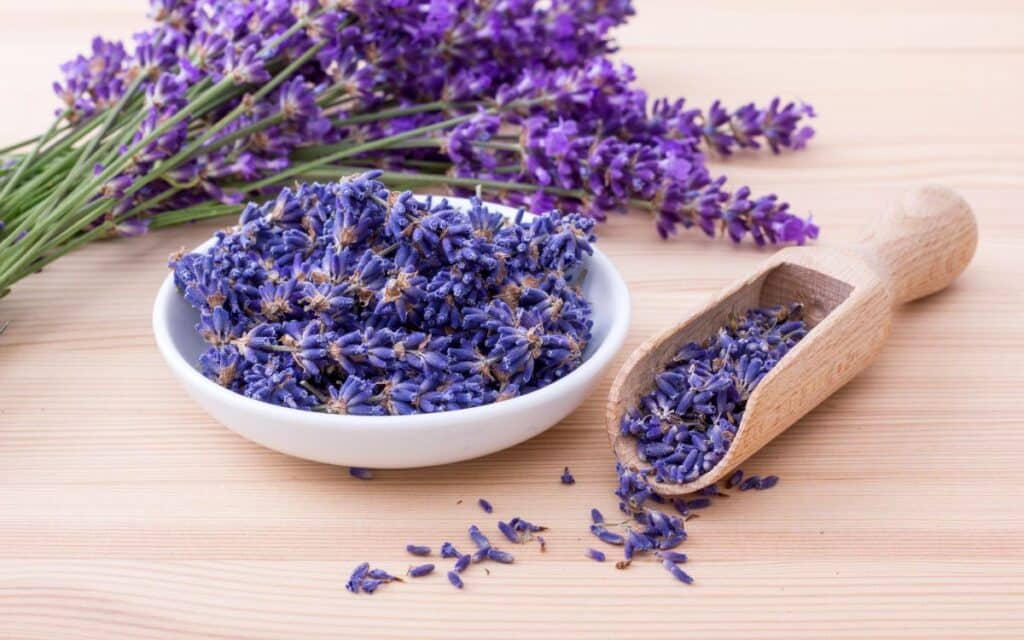
Lavender is a fragrant herb with purple-blue flowers and narrow leaves. It is known for its calming and soothing properties, and has been used for purification and healing in magical and medicinal practices. To calm your mind and promote relaxation, you could burn dried lavender in a bowl, or make a lavender oil blend to apply to your temples. To cleanse your space, you could burn lavender incense or sprinkle dried lavender around your home.
Elder: Protection, Healing, and Death and Rebirth
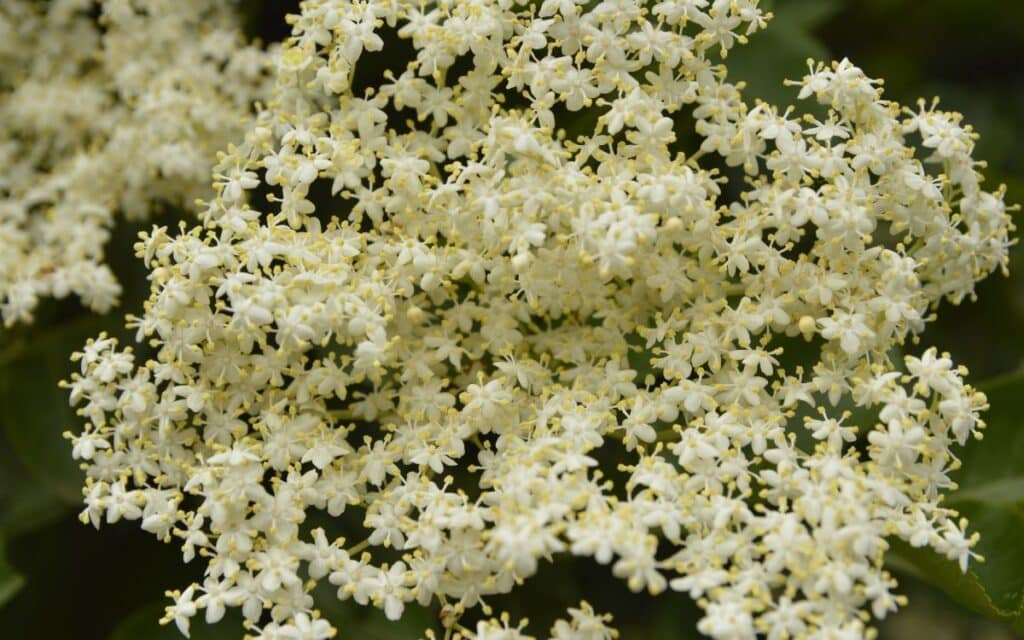
Elder is a shrub or small tree with clusters of white flowers and dark purple berries. It has long been associated with healing and protection, and is believed to have powerful spiritual properties. Elder is also associated with death and rebirth. To protect your home from negative energy, you could plant elder bushes near your doorstep, or hang dried elderberries above your front door. To promote healing, you could make elderberry syrup and take it as a natural remedy.
Dandelion: Divination, Wishes, and Transformation
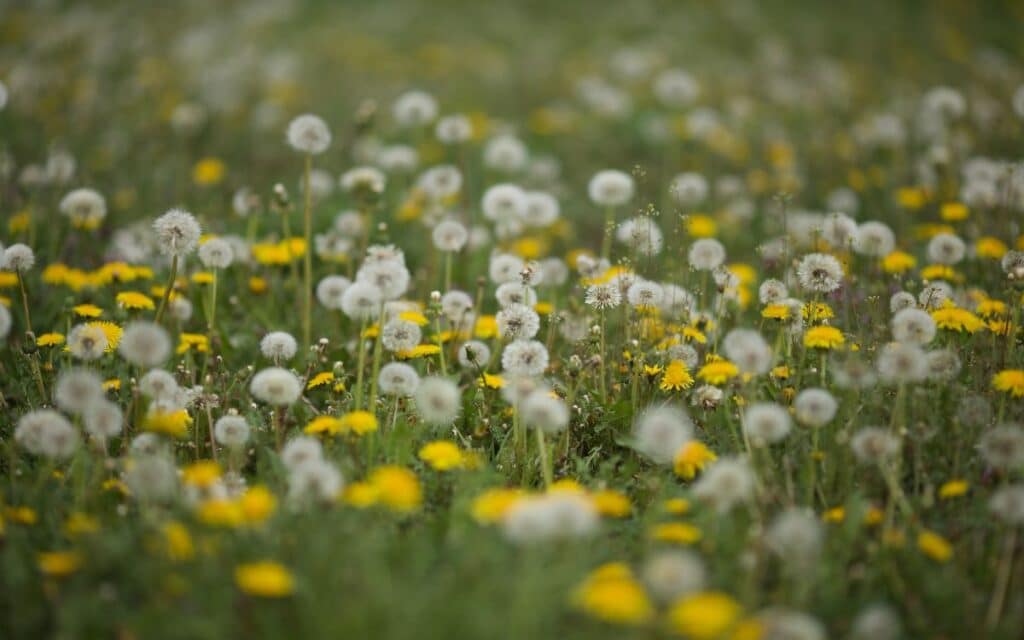
Dandelion is a common weed with bright yellow flowers and puffball seed heads. It has been used for centuries in traditional medicine and magic, and is believed to have properties related to divination, transformation, and wishes. To make a wish, you could blow on a dandelion puff and watch the seeds fly away. To promote transformation, you could brew a tea using dried dandelion root, and drink it before beginning a new project or embarking on a new journey.
Thyme: Courage, Strength, and Purification
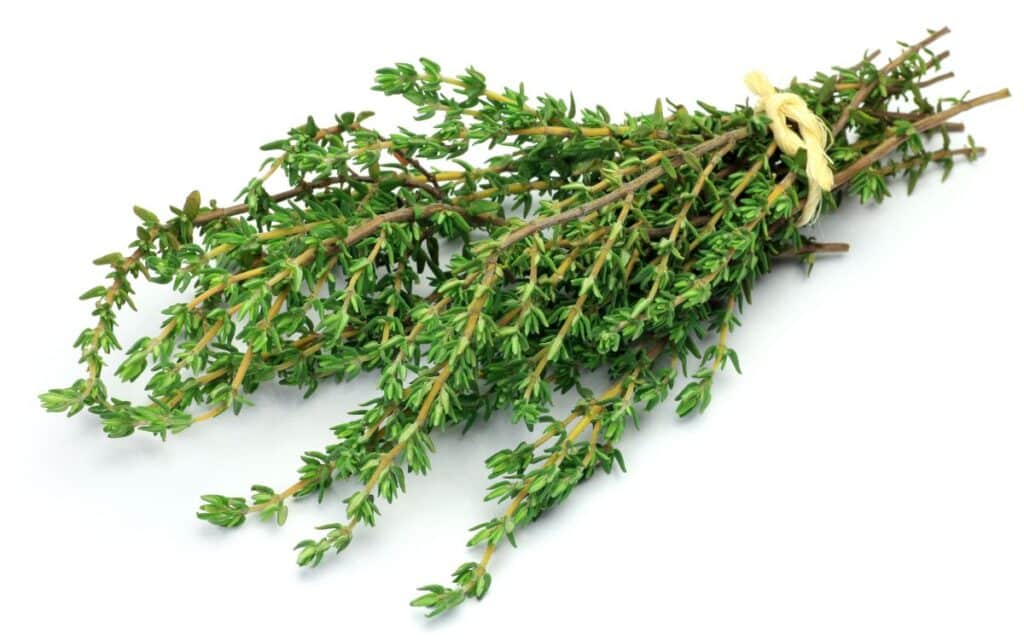
Thyme is a fragrant herb with small, delicate leaves and purple or pink flowers. It is known for its culinary uses, but has also been used in magic and medicine for its properties related to courage, strength, and purification. To purify your space, you could burn dried thyme in a bowl, or sprinkle thyme leaves around your home. To boost your confidence and courage, you could carry a sprig of thyme in your pocket or wear a thyme essential oil.
Mugwort: Psychic Abilities and Lucid Dreaming
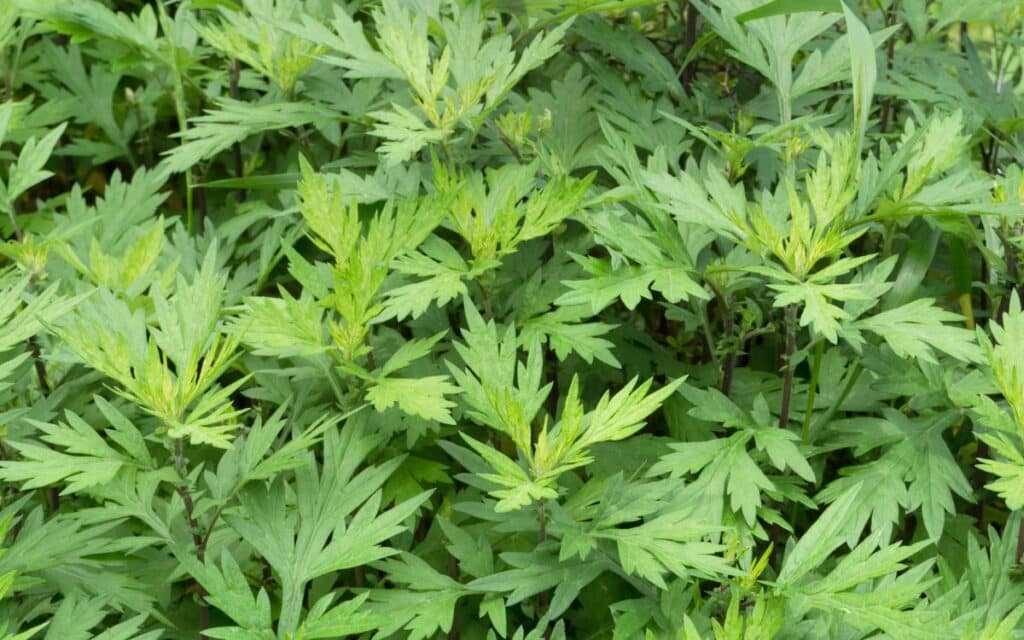
Mugwort is a perennial herb with aromatic leaves and small, greenish flowers. It has been used in magical practices for centuries, particularly for its alleged ability to enhance psychic abilities and promote lucid dreaming. To enhance your psychic abilities, you could make a tea using dried mugwort leaves, and drink it before meditating or doing divination work. To promote lucid dreaming, you could place a mugwort sachet under your pillow.
Yarrow: Divination, Protection, and Healing
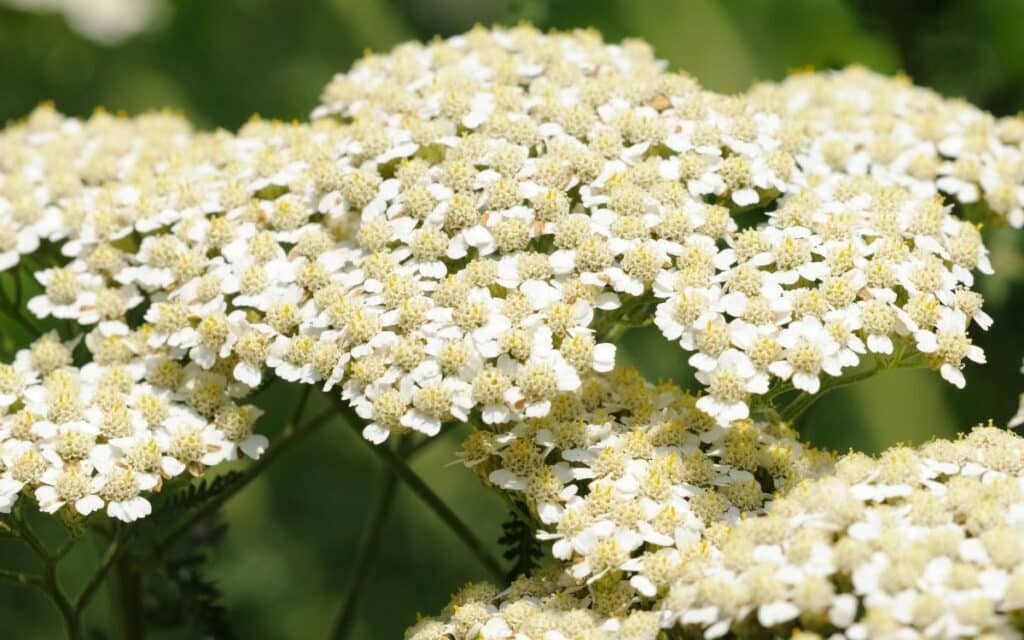
Yarrow is a perennial herb with small, delicate flowers in shades of pink, white, and yellow. It has been used for centuries in magic and medicine for its properties related to divination, healing, and protection. To protect yourself from negative energy, you could carry a yarrow amulet or wear a yarrow essential oil. To promote healing, you could make a poultice using yarrow leaves and apply it to a wound or sore spot.
Ivy: Fidelity, Protection, and Spiritual Growth
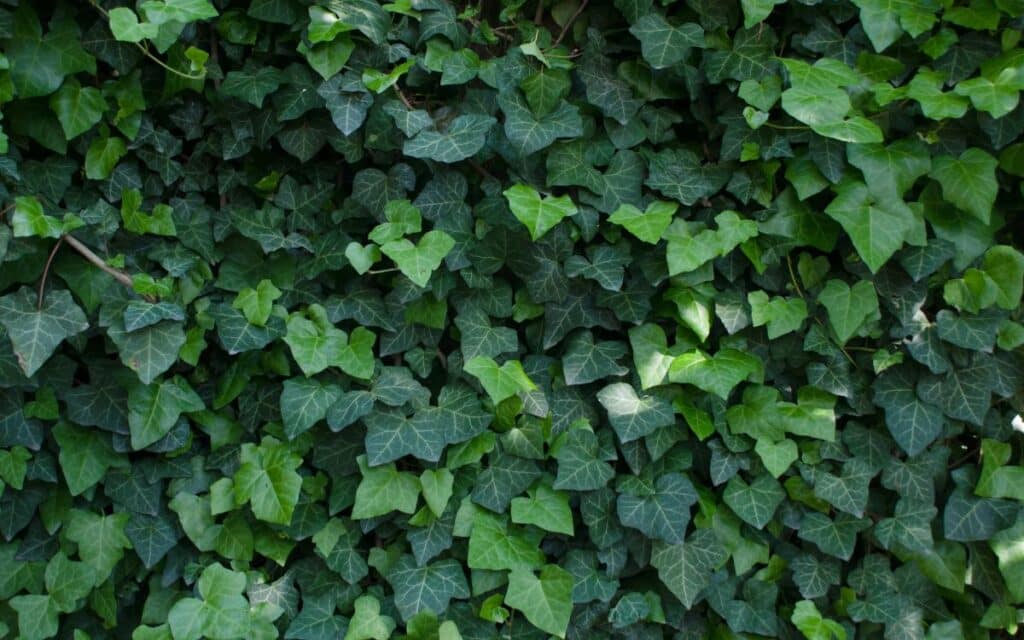
Ivy is a climbing plant with glossy green leaves and small, yellow-green flowers. It has long been associated with fidelity, protection, and spiritual growth, and is believed to have the ability to ward off negative energies. To promote fidelity in a relationship, you could carry a sprig of ivy in your pocket, or wear an ivy leaf as a talisman. To promote spiritual growth, you could make an ivy wreath and wear it during meditation or ritual.
Holly: Protection, Purification, and Winter Solstice
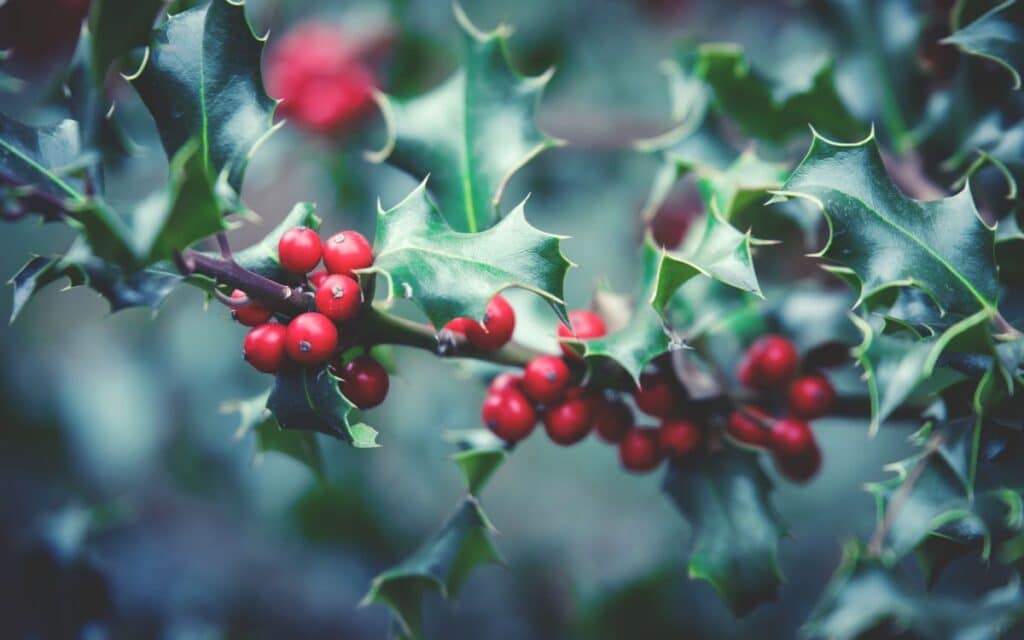
Holly is a tree or shrub with dark green, spiky leaves and bright red berries. It is often associated with Christmas and winter solstice celebrations, but has also been used in magic and medicine for its properties related to protection and purification. To protect your home from negative energy, you could hang holly wreaths or garlands around your doorway. To purify your space, you could burn dried holly leaves in a bowl or smudge your space with holly incense.
Rowan: Protection, Healing, and Warding Off Evil Spirits
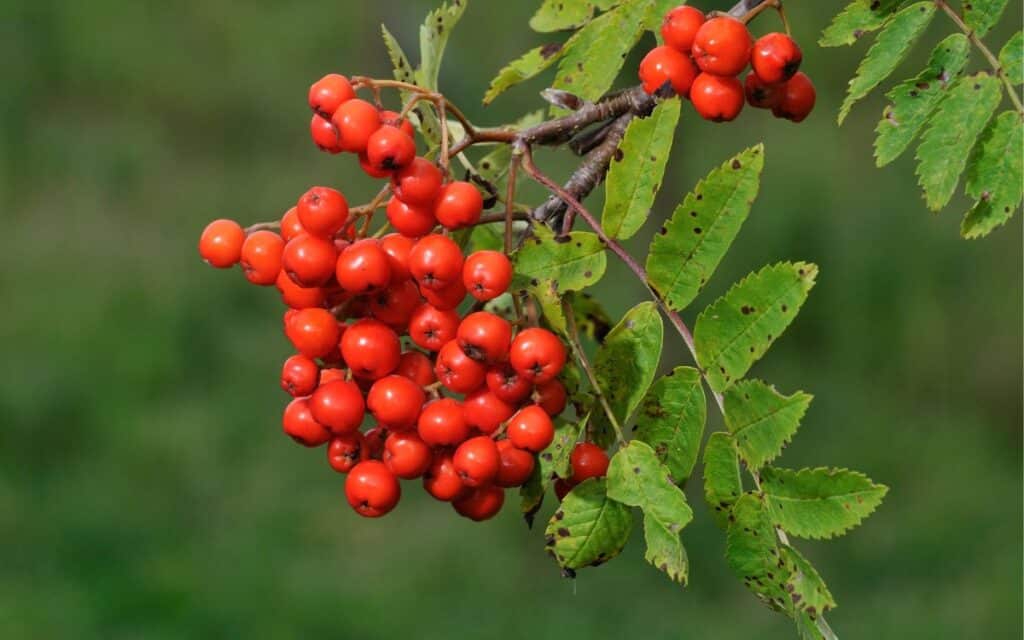
Rowan is a small tree with clusters of small, white flowers and bright red berries. It has been used for centuries in magical and medicinal practices, particularly for its alleged ability to protect against negative energies and promote healing. To protect yourself from negative energy, you could carry a rowan berry amulet or wear rowan essential oil. To promote healing, you could make a tincture using rowan berries and take it as a natural remedy. Discover more about British trees in folklore.
Nettle: Protection, Cleansing, and Prosperity
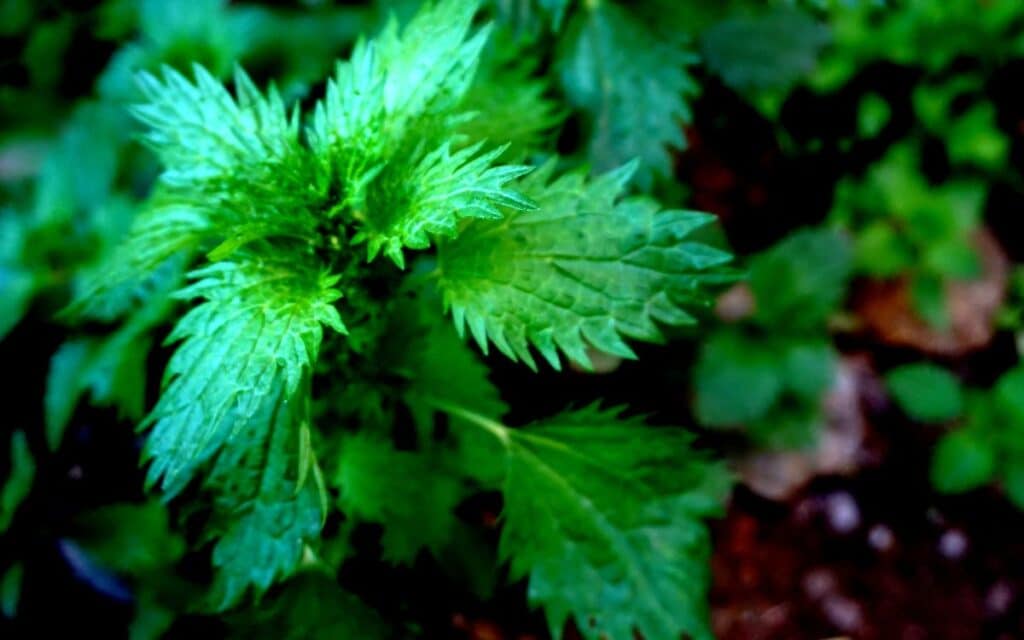
Nettle is a herbaceous perennial plant with serrated leaves and small, greenish flowers. Despite its reputation as a weed, it has long been used in magic and medicine for its properties related to protection, cleansing, and prosperity. To protect yourself from negative energy, you could carry a nettle leaf in your pocket, or make a nettle tea and sprinkle it around your home. To promote prosperity, you could hang dried nettle leaves above your front door.
Do you have a favourite common garden plant we missed? Tell us in the comment section below!

